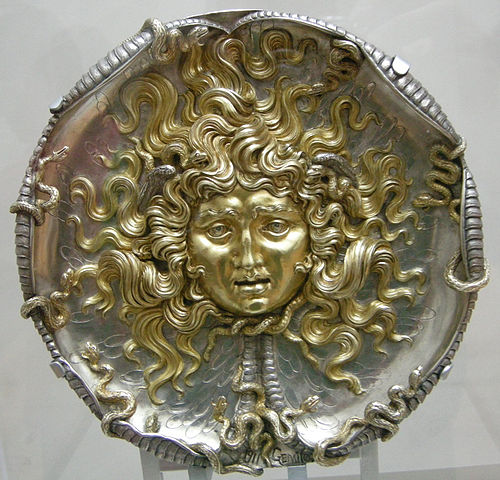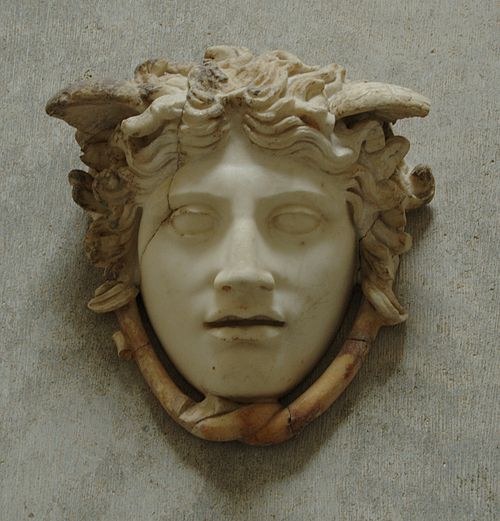Polypnoun
(medicine) an abnormal growth protruding from a mucous membrane
Polypnoun
(zoology) a cylindrical coelenterate, such as the hydra, having a mouth surrounded with tentacles
Polypnoun
One of the feeding or nutritive zooids of a hydroid or coral.
Polypnoun
a small vascular growth on the surface of a mucous membrane
Polypnoun
one of two forms that coelenterates take e.g. a hydra or coral: usually sedentary and has a hollow cylindrical body usually with a ring of tentacles around the mouth
Medusanoun
A jellyfish; specifically (zoology), a non-polyp form of individual cnidarians, consisting of a gelatinous umbrella-shaped bell and trailing tentacles.
Medusanoun
The Gorgon; or one of the Gorgons whose hair was changed into serpents, after which all who looked upon her were turned into stone.
Medusanoun
Any free swimming acaleph; a jellyfish.
Medusanoun
(Greek mythology) a woman transformed into a Gorgon by Athena; she was slain by Perseus
Medusanoun
any of numerous usually marine and free-swimming coelenterates that constitute the sexually reproductive forms of hydrozoans and scyphozoans
Medusanoun
one of two forms that coelenterates take: is the free-swimming sexual stage in the life cycle of a coelenterate and has a gelatinous umbrella-shaped body and tentacles
Medusa
In Greek mythology, Medusa (; Ancient Greek: Μέδουσα ) also called Gorgo, was one of the three monstrous Gorgons, generally described as winged human females with living venomous snakes in place of hair. Those who gazed into her eyes would turn to stone.





















